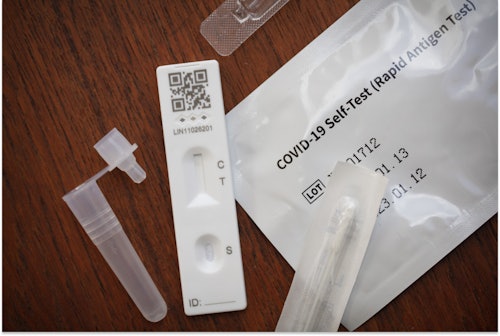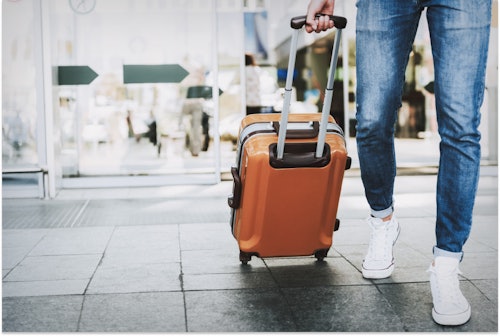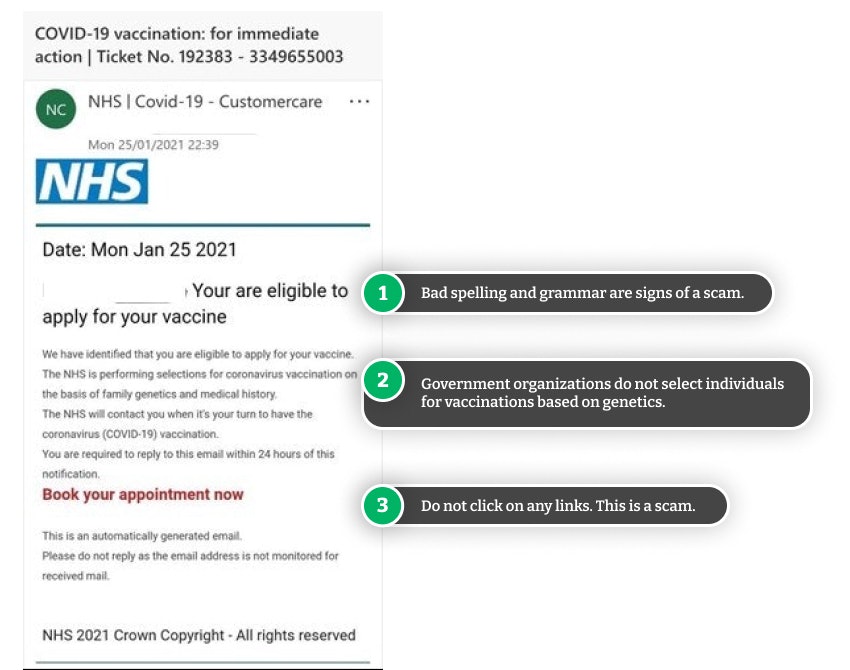COVID-19 In Depth
- What Are COVID-19 Scams?
- Common Coronavirus Scams
- COVID-19 Scam Red Flags
- How to Beat Coronavirus Scams
- Fallen For a COVID-19 Scam?
The global pandemic caused by COVID-19 changed nearly everything about how the world works. Unfortunately, one of the things that stayed the same was the opportunistic scammers looking to exploit others in times of need. In fact, since the virus first took hold in 2019, it seems the only things spreading more quickly than the coronavirus itself are COVID-19 scams.
What Are COVID-19 Scams?
COVID-19 scams is a catchall term, referring to the wide-ranging and numerous deceptions that have sprung up in the wake of the global pandemic. Helping perpetuate this new rise of fraud are the twin issues of change and confusion which have both run rampant since the virus started spreading.
A novel disease in every way, COVID-19 has spurred any number of news reports, many with updated or altered information on what the virus is and how best to handle it. And these changing dispatches contributed to a sense of mistrust—or, at least, some misgiving—over what’s actually going on.
Meanwhile, the government rolled out a number of very real programs, touching on everything from unemployment benefits to rent moratoriums, in an attempt to help. But in their rush to respond, many details got lost and had to be hammered out in real-time. Many people missed the boat on these new opportunities or struggled to understand the new and changing rules behind them. And at the same time, millions more people became eligible for these extended programs, with the government hardly able to keep up with the sharp increase.
Seizing on the chaos and desperation, scammers unleashed a barrage of nefarious schemes centered around the virus. In fact, in the first four months of 2020 alone, more than 18,200 reports of COVID-19 scams were filed with the Federal Trade Commission (FTC), representing a loss of more than $13.4 million.
Since then, the problem of coronavirus scams has only ballooned. But, with the newness of the virus itself waning, a bit more sense can be made of the picture, with some clear patterns emerging—and the red flags to go with them.
Common Coronavirus Scams
As the coronavirus continues to develop and adapt, so too do the scammers profiting off of it.
There is any number of COVID-19 scams going on at a given time, with new schemes hatched all the time. But these are, so far, some of the most common types of coronavirus scams.
Coronavirus Survey Scams
Taking advantage of the concept of contact tracing and the general push to collect new data on the novel virus, some scammers have developed false COVID-19 surveys meant to capture sensitive personal details that can help them commit identity theft.
The surveys may seem earnest or indeed be modeled after real surveys government entities have used, but they’ll likely include more pointed personal questions, ask for sensitive medical or financial details, or offer money or gifts in exchange for taking them.
COVID-19 Vaccine Scams
Though the COVID-19 vaccine is free and now widespread in America, some scammers are still trying to peddle appointments for the shot, sell fake vials of it, or push other (unproven) antidotes, for a fee.
Vaccine cards have also been the subject of scams. Fake ones are being sold on the black market, while scammers are also collecting information from selfies people have posted of their cards, which sport some potentially useful personal information.
Government Program/Funding Coronavirus Scams
One of the most widespread and dangerous types of coronavirus scam, these schemes revolve around the raft of new legislation pushed out in the wake of the virus.
Scammers may pose as government officials, reaching out through emails, texts, phone calls, or even robocalls. They may claim to be connected to the expanded unemployment benefits, small business loan program, stimulus checks, rent moratorium, new child tax credit, or any number of other programs created in the confusing wake of the virus.
What they’re all after is as much personal information of yours as they can get their hands on – a cache that will help them commit identity theft in your name.
COVID-19 Charity Scams
Sadly, scammers aren’t above even posing as charity workers.
These types of fraud involve scammers getting in touch, on behalf of a charity helping those in need during the pandemic. They may claim to be from a famous organization or a new one created for this purpose. But any donation you make to these groups—along with any personal information you give them—will go straight to scammers’ pockets.
Coronavirus Impersonation Scams
Impersonation scams are classic plots but coronavirus has given them a whole new twist.
In these types of COIVD-19 scams, a scammer will call, pretending to be someone you know—usually a grandchild or family member in the military—pretending to be sick with the virus. They’ll ask you to send help and money, but of course, the scammer will pocket it all.
Coronavirus Investment Scams
The global pandemic has certainly pushed technology—and the need for more of it—to new heights. But some scammers are riding the coattails of that innovation, sending out emails or other messages that offer a chance to get involved in a “hot new product” or stock involving these new developments.
They’re just regular investment scams, dressed up as COVID-savvy advice.
COVID-19 Funeral Assist Scams
One of the most lurid types of coronavirus scam, these schemes revolve around a real government program: The Federal Emergency Management Agency’s Funeral Assistance Program.
The actual program provides financial assistance for COVID-19-related funeral expenses. But scammers will call surviving family members, pretending to be from the office, and using that excuse to collect sensitive information on the deceased, including Social Security numbers and other financial information.
COVID-19 Scam Red Flags
The confusion, stress, grief, and fast-moving facts on the ground surrounding the pandemic make it especially difficult to tell the difference between a COVID-19 scam and a genuine call for help.
Still, there are a few red flags that may help you identify these schemes, including:
- Calls or texts from unknown numbers.
- Unsolicited calls, texts, or emails about coronavirus relief, surveys, vaccines, or other treatments.
- Calls, texts, emails, or surveys that ask for sensitive financial, medical, or insurance information.
- “Contact tracers” that ask for your Medicare number or financial information.
- Anyone offering to set up a coronavirus test or vaccine appointment for a fee.
- Anyone offering money or gifts in exchange for coronavirus surveys.
- Anyone who pressures you to act fast or share personal information, especially those claiming to call from a charity or government agency.
- Poor grammar, bad spelling, or strange turns of phrase.
Again, these new breeds of scams are still changing all the time. Overall, the best bet is to remain wary and go with your gut. If something doesn’t feel right, it probably isn’t.
How to Beat Coronavirus Scams
An abundance of caution is the biggest thing needed to beat coronavirus scams. Still, there are a few more ways you can shore up your safety in these strange times, including:
- Never giving out sensitive information like Social Security numbers, medical ID numbers, insurance information, or financial details. Real government employees will not ask you for this information.
- Never clicking on a link in an unsolicited text or email.
- It’s possible for scammers to manipulate the names of links to make them look more official.
- Hover your cursor above the link will let you see the true URL without clicking on it.
- Not picking up calls from unknown numbers.
- Not responding to messages left by robocalls.
- Researching any charity before donating.
- Examining the email address on any coronavirus-related messages. Make sure it’s from a .gov or other appropriate domain.
- Never paying for something or giving out personal details over the phone. If you receive a suspicious call, hang up and call back on an officially-sourced customer service number.
Essentially, it’s always a good idea to keep all of your personal information as private as possible—no matter who’s asking.
Fallen For a COVID-19 Scam?
If you think you’ve fallen for a coronavirus scam, there are still some measures you can take.
Depending on the type of scam, you can—and should—contact any or all of the following agencies:
- The National Center for Disaster Fraud.
- The FBI.
- The Internet Crime Complaint Center (IC3).
- The Treasury Inspector General for Tax Administration.
- The agency in charge of your state’s unemployment benefits.
- Your state’s Attorney General’s office.
If you gave away any personal, medical, insurance, or financial information, you should also immediately take the appropriate steps to recover from identity theft, such as:
- Freezing any accounts connected to the information in question.
- Contacting your insurance provider or bank and credit card companies about the incident.
- Canceling your current credit and debit cards and opening new ones.
- Changing your passwords and PINs.
Depending on the type and severity of the scam, you may even consider contacting your local authorities.
Scams Relating to COVID-19
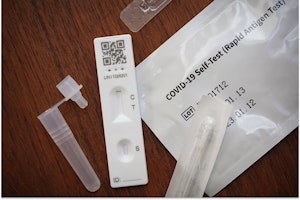
Be On Alert for Fake COVID-19 Tests That Rip You Off
Need to get tested? Only get tested at healthcare facilities or pharmacies, or buy at-home tests that are FDA-approved.
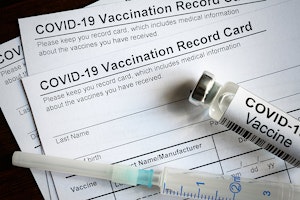
Scammers Selling Fake COVID-19 Vaccine Cards Want to Steal Your Identity
Using a fake COVID-19 vaccination card is not only illegal, but it can lead to having your identity stolen—it's not worth it.
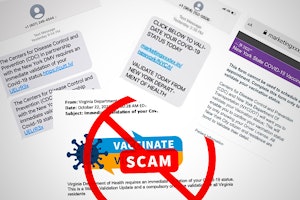
Received a Text/Email Asking You to Validate Your COVID-19 Status? It's a Scam
Scammers are impersonating government departments in an attempt to steal your information in this new COVID-19 scam.
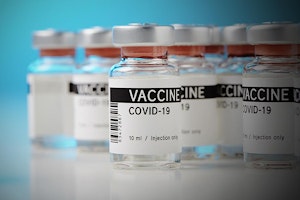
Don't Fall for This COVID Vaccine Scam: Vaccines Are Free
If you're being charged for the COVID-19 vaccine, you're being scammed. The vaccine is free to all U.S. residents and you cannot buy the vaccine online.
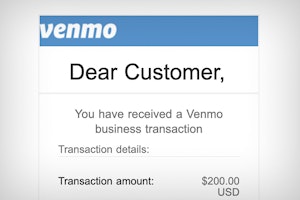
Selling on Facebook Marketplace? Beware of Fake Venmo Emails
Scammers are sending fake Venmo emails to Facebook Marketplace sellers in an attempt to steal login information and money.
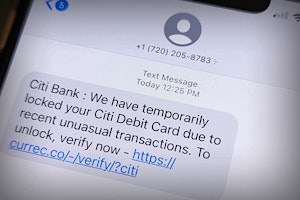
Citibank Text Message Scam: Locked Debit Card Alert Is Fake
If you've received a locked debit card text message from Citibank, it's likely a scam. Don't click on the link and delete the text message.
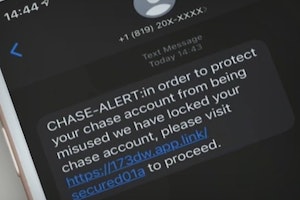
Real Chase Fraud Text Alert or Scam Message?
If you receive a text message from Chase Bank, don't click on any links or call the phone number listed—it could be a scam designed to steal your information and money.
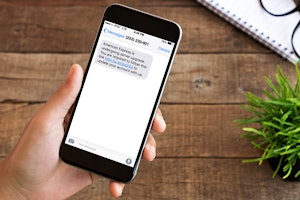
Amex Fraud Text Alert Scams: Spotting a Fraud
If you receive a text message from American Express, don't click on any links or call the phone number listed—it could be a scam designed to steal your information and money.

Fake Verizon Text Messages: How to Avoid a Scam
Verizon may send you text messages from time to time with account updates or data usage alerts, but beware—most of these aren't really from Verizon but scammers.
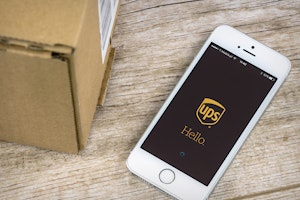
Get an Unexpected Delivery Alert? It May be a UPS Text Scam
Scammers are using SMS messages to send fake alerts to customers regarding a package delivery. Here's what to know about this scam.
Guides Relating to COVID-19
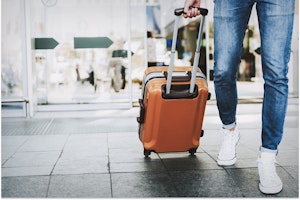
Restrictions & Guidelines for Traveling During the COVID-19 Pandemic
As the holiday season approaches, be sure you understand the COVID-19 rules and restrictions for the city you're visiting so you can enjoy your vacation.
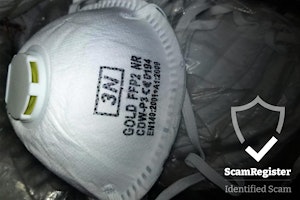
Fake N95 Coronavirus Masks - How to Identify This Scam
Consumers have sought out the protection of N95 masks and searched online. But scammers have been selling fake products. 14+ million masks have been seized by US Customs
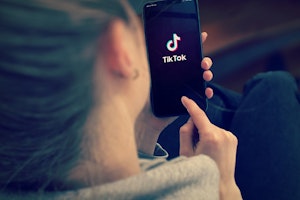
How to Get Verified on TikTok
Securing that little blue checkmark can mean brand collabs, sponsorship opportunities, or protecting your unique content from impersonators.

How to Tell if Nikes Are Fakes: From Tags to the Stitching
Nike is one of the biggest brands targeted by counterfeiters and scammers - be extra careful with Nike products from non-official retailers as you could end up with a fake
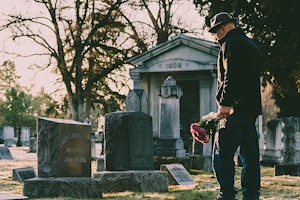
Funeral Homes & Prices - What Are The Costs & Your Rights?
Average prices from funeral homes range between $8k to $14k and consumers are meant to be protected by a 'Funeral Rule' - what are your consumer rights?
News Relating to COVID-19
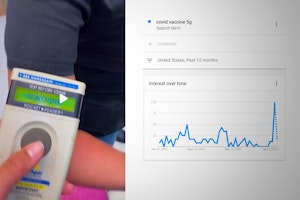
Searches for "COVID Vaccine 5G" Hit All-Time High, But Microchips Definitely Not in Vaccine
The number of people searching for the term "COVID vaccine 5G" on Google has just hit an all-time high, but there's one way to be sure that there are no microchips.

FBI Warns Fake COVID Vaccine Cards Could Lead to Prison Time
Taking a chance on a fake COVID-19 vaccination card seems like an easy way to get around requirements, but think again before you land yourself in prison.
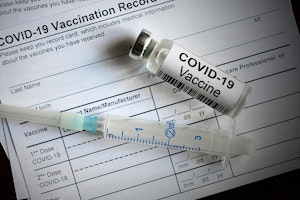
Not So Fast: That Vaccine Card Selfie May Be Scammer Gold
You’ve waited in line. You’ve rolled up your sleeve. You’ve been stuck with a needle. Now it’s time to show off.

Urgent CDC Warning: Eye Drops Linked to 3 Deaths, Loss of Vision
The CDC is warning eye drops users of a rare bacterial infection from 2 brands of eye drops. The infection is resistant to antibiotics and has resulted in the loss of vision, loss of eyeballs and the death of 3 patients.

Banks May Refund More Zelle Scam Victims in 2023
Zelle scams have reached a serious volume. New reports suggest that banks are looking at new refund protections for customers in 2023.

